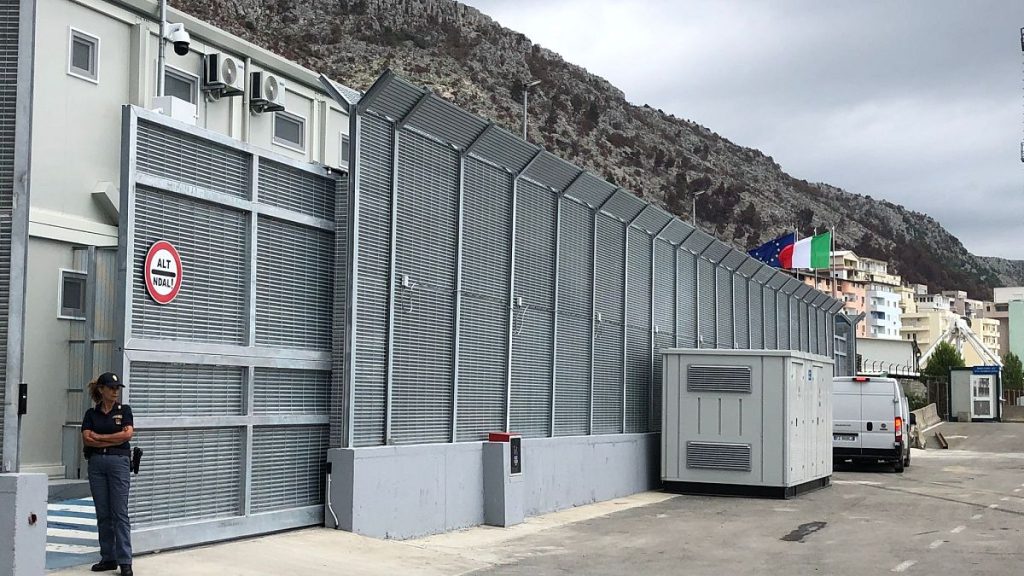The Italian government has built centres in Albania to host up to 400 male migrants who have been rescued in the Mediterranean. These migrants will be taken to the coastal town of Shengjin where a center run by Italian staff has been established. The main section of the center is meant for asylum seekers to stay while their applications are being processed, with a requirement for applications to be completed within 28 days. During this time, migrants will have access to interpreters, medical visits, and the ability to apply for asylum. Those who are not entitled to asylum will be placed in a separate part of the camp and potentially transferred to Italy before being repatriated to their countries of origin. There is also a prison within the center for migrants who commit crimes, and the entire center is a place of forced detention monitored by Italian police officers.
The costs for these structures have been covered by Italy, with tens of millions of euros spent on their construction. The agreement between Italy and Albania is set to last for five years, and the overall cost of procedures throughout the duration of this agreement is not yet quantified. Asylum seekers whose requests are accepted will be transferred to Italy with a residence permit, while those who are denied asylum will be repatriated, all at the expense and responsibility of Italy. The aim of these centers is to provide a secure and structured environment for migrants rescued at sea, ensuring that their asylum applications are processed efficiently and that those who are not granted asylum are repatriated.
The centers in Albania are part of an agreement between Italy and Albania signed eleven months prior to their opening. The centers are designed to accommodate rescued migrants and provide necessary services such as interpreters, medical visits, and legal assistance for asylum applications. The accelerated procedure outlined in Italian law requires that asylum applications be completed within 28 days, during which time applicants will have access to support from lawyers and staff from international organizations. The facilities also include a prison for migrants who commit crimes, with the entire center being a fenced-off area monitored by Italian police officers to ensure security.
The centers in Albania are specifically built to house rescued migrants who have been picked up by Italian ships in the Mediterranean Sea. It is noted that only male migrants will initially be sent to these centers, with space for up to 400 individuals. Those granted asylum will be transferred to Italy with a residence permit, while those denied asylum will be repatriated to their countries of origin. The centers also have measures in place to handle situations where capacity is exceeded, ensuring that migrants are either transferred to Italy or repatriated as necessary. The agreement between Italy and Albania covers the costs associated with operating these centers, with Italy taking responsibility for the care and processing of rescued migrants within the Albanian facilities.
In addition to providing accommodation for asylum seekers, the centers in Albania also serve as places of forced detention for migrants who have committed crimes. These individuals may be housed in a separate prison within the center, further highlighting the security measures in place within the facilities. The goal of these centers is to streamline the asylum application process for rescued migrants, ensuring that decisions are made swiftly and that those who do not qualify for asylum are handled accordingly. Italy has invested significant resources in the construction and operation of these centers, with the ultimate aim of providing a structured and secure environment for rescued migrants while their cases are being processed.


